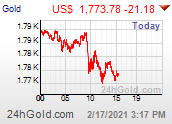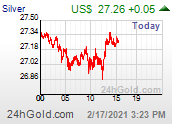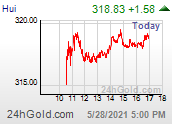How is a “reusable” bag defined?
from Dave Felice:
City Council Members:
I appreciate the intention of this (shopping bag fee) proposed ordinance. I generally support the principle, but there are too many questions which need to be answered before moving forward. I hope you’ll see my physical presence here as a neighborhood representative is indicative of the high level of public interest.
I will present my comments as questions:
- Why does this proposal apply only to grocery and convenience stores instead of all stores which provide merchandise in bags?
- Why does this proposal apply to paper bags, since paper is readily compostable and recyclable?
- Is the fee enough to cover merchants’ costs, and what prevents a merchant from hiking overall prices to cover “administrative” costs?
- How is the fee to be enforced? Does the collection use the same process as tax remittance? When and how does the merchant pay the fee?
- In the likely absence of an audit, what assurance does the public have that all fees will be used for environmental education?
- How much revenue will be needed for environmental education and what happens is fees either don’t meet or exceed expected revenue?
- How can the public be convinced this is not a revenue-generating scheme?
- How does City Council intend to convince the public that this is not a tax, intended to bypass provisions of the Taxpayer Bill of Rights (TABOR)?
- How is the Denver ordinance different from the bag tax in Montgomery County, Maryland?
- Since the language is carefully crafted to disguise the bag tax as a specific use fee, who determines what that specific use is?
- Because there is broad discretion in the use of the bag revenue, How does the proposal satisfy the legal requirement that the charge be used to finance a particular service utilized by those who must pay the charge?
- If the City uses fees paid by shoppers to give away reusable bags to those who are not paying for the bags, how is that different from a re-distributive tax such as streets and schools?
- How does the proposal keep from the fee from being regressive and hitting low-income shoppers, since merchants will likely raise prices?
- How is a “single use” or “disposable” bag defined, since even ordinary plastic or paper bags can be re-used several times?
- How is a “reusable” bag defined? Can a merchant provide reusable plastic bags?
- What is the real environmental impact of reducing plastic bags, that is, how much does packaging production cost and how does encouraging reusable bags impact transportation costs?
- We have heard unsubstantiated stories of how bags impact the environment, but are there any empirical reports providing specific data? Do these reports come from Public Works and Denver Water, which have vested interests in the outcome or from third party sources?
- Many “reusable” bags are made from plastic or other petroleum based products, made in China, and wear out after time. What is the real cost of producing, importing, and using these bags?
- Can this proposal encourage domestic production of canvas bags made from cotton grown in the U.S.?
- Can the drive to reusable bags help develop a U.S., preferably in Colorado-based, bag industry using hemp which is cheap to grow, organic, and extremely durable?
- How are “groceries” defined? Is a store such as Walgreen’s a food store which generates over two percent or revenue from “groceries?”
- Stores of less than 1500 SF are exempt, but how is the square footage determined? Doe that include storage, preparation, and administrative space?
- Some convenience stores are actually smaller than 1500 SF, but may produce a larger quantity of disposable bags. How is that usage monitored?
- Do we have any actual independent reports of the success or failure of bag restrictions in other cities?
- Can a merchant refuse to participate? For example, what if a store operator simply says he/she will not provide any “disposable” bags?
- Are cardboard boxes, used as carriers, exempt? If so, why?
- How does a shopper prove he/she is qualified to receive a reusable bag at public expense?
- How are worn-out and degraded reusable bags going to be recycled? Do solid waste management firms have recycling mechanisms in place?
- If the bag fee is to be collected at point of sale, can a merchant provide a bag dispenser located away from point of sale and allow shoppers to select or not select a bag?
- Can a store clerk reject a customer provided bag considered unsanitary?
- Since some clerks sometimes double-bag one item, how is a decision made on how many disposable bags are needed/used?
- Since a primary purpose is to educate people on reusable bags, is there any reward for good behavior when a shopper provides reusable containers?
- Is there any credit or reward offered for consumers who return disposable carrying materials?
- Has any consideration been given to an introduction period, for example, not imposing the fee until after a period of time?
Thank you for your consideration. I would be pleased to provide any additional information you might seek.

.jpg)









It is good to have reusable bag to lessen plastic usage that could reduce plastic garbage.
ReplyDelete